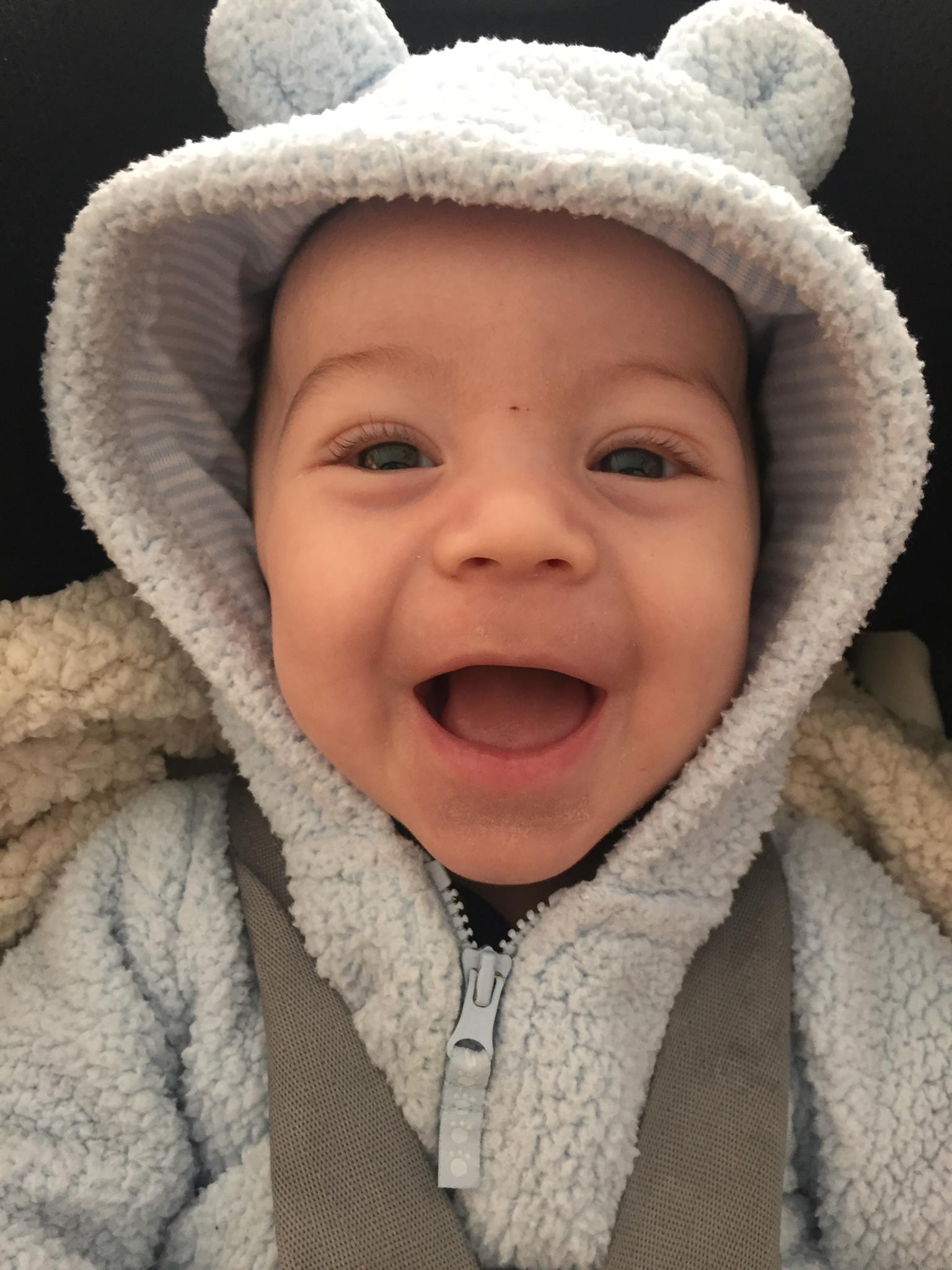Judaism, Identity, Shalom Simcha and Tomorrow's Promise
Dex and Papa
When my wife and I met with a Rabbi to discuss our son’s Jewish name a little over three years ago, we wanted to give him something that paid tribute to his ancestors but also that set him on a different path. There is a longstanding history of depression in my family, one that, like any depressive parent, I’m worried about passing onto my son. So in a hopeful spirit we decided to give him a Jewish name radiating Joy and Happiness.
We ultimately chose Shalom Simcha because we loved the way it sounded but we also loved the meaning: "Shalom" famously means over a thousand things, including “Hello” and “Where the weed at, homie?” Simcha, meanwhile, means “Joy.”
We gave our beautiful little Jewish boy a joyful Jewish name because we wanted him to escape the Curse of the Black Dog that has hounded me, and much of my family, much of my life. We gave him a happy name because we wanted, against all odds, to have a happy child.
So far Declan hasn’t just been an unusually chipper, upbeat and sunny child: he’s damn near joy and happiness personified, as far as my wife and I are concerned. Declan seems to love just about everything at this stage in his life. He radiates excitement for everything around him, a wonderful and endearing trait.
Declan seems to love just about every part of his life that doesn’t involve going to bed or not drinking chocolate milk. This includes Judaism. So far, my son seems to have an overwhelmingly positive opinion of Judaism, and Judaism is fairly central to his existence. Declan goes to a Jewish school where his mother teaches, he spends Shabbats with his adoring Orthodox Jewish grandparents and aunts and uncles and reads Jewish-themed books we get for free through the P.J. Library.
For Declan so far, Judaism seems to mean warmth and togetherness and family and celebration and tradition and wonderful food and warm gatherings where his aunts and uncles and grandparents all dote on him for being the most perfect little angel in the entire world.
I love that. I want my son to be proud to be a Jew, and I want him to have a different experience with Judaism than I did. For me, Judaism was always a core component of my identity and a huge part of who I am, but as a child I saw it largely as a series of tedious, dull and exhausting obligations that had everything to do with following orders and conformity and little to do with spirituality or God.
I came to resent Judaism and everything that went with it to the point where, when my father and religious-minded stepmother got divorced I felt lost and despondent and crushed, but I also felt liberated from the dreary responsibility of doing all the things you’re supposed to do as a Jew. I never lost my Jewish identity, but I chose to be a completely secular Jew deeply immersed in the lifestyle and aesthetic and, most of all, food, but completely unconcerned with going to synagogue or praying or, god forbid, learning Hebrew.
My family imploded right around the time I would have started learning the Torah portion for my Bar Mitzvah. My 11 year old brain was geeked about not having to learn to read scripture in its original Hebrew but I was also bummed that I would be missing out on the massive payday awaiting each Bar Mitzvah or Bat Mitzvah boy or girl on their big day.
This means that there is a very good chance that in the eyes of the Jewish community, Declan will become a man by having his Bar Mitzvah at the appropriate age (13) before his old man. There’s a very good chance that Declan’s relationship with Judaism will change over time. It will become more complicated and ambivalent but I hope that the joy and acceptance and validation he’s experiencing now forms the backbone for a lifelong love of Judaism, and God, and carries him through the inevitable phases of questioning and disillusionment and doubt.
As parents and human beings and Jews, we have no idea of what the future holds, but we hope that Declan sees his connection to Judaism as a strength, and a gift, and not some bullshit his parents force upon him to make themselves feel more holy and righteous.
Support Nathan Rabin’s Happy Place maybe by kicking in a few shekels over at https://www.patreon.com/nathanrabinshappyplace





